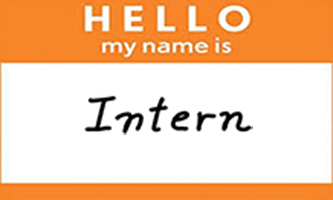30 Years of Animated Movie Trend
30 years of animated movie budget trend_simplified

If you are a rising junior or senior currently enrolled in a 4-year college or university, internships are a great way to get your foot in the door. Internships are also available at community colleges. Some schools including high schools offer internship credit programs. Read the job description to see what the requirements are for any given studio or company. Internships are a good opportunity to connect with people in the industry and get the experience that you need to open up new doors after graduation.
Some studios offer year-round internships. Most summer internships start at the beginning of June and end at the end of August (about 12 weeks.) We suggest looking for a summer internship position as early as December. Different studios have different deadlines and every year it could change. For example, these are some of the deadlines for summer 2018 internships:
Different studios have different internship positions that they want to fill. For example, Pixar offers the following types of internships:
Don’t worry if you don’t see an internship in an area you are pursuing. Try looking for the internship position that is right for you in different studios and companies.
Most studios will ask for your resume, cover letter and demo reel which you should get started on right away. It is much better to have something to edit when an opportunity presents itself. If you put this together at the last minute you will forget to add things and you will make mistakes/typos. Take a look at our resume, cover letter and demo reel advice page to kick start them. It’s a good idea to keep on updating your demo reel with your latest best work throughout your school years. Try to get feedback from your teachers or industry professionals. Start now. This way you’ll know what needs improvement and you’ll have time to make those improvements before a deadline.
Your resume can include the following:
Everyone has to start somewhere. Work with what you have so you can add to it and take stock of what you need to add to make yourself more marketable.
Start with what you have. Make a website and embed your reel. You can upload your video to youtube.com or Vimeo.com for free. You can create a website on wix.com, weebly.com, or google.sites.com for free as well. Make sure you start your reel with work that is relevant to the job you are applying for.
Some studios will ask for letter of recommendation(s) and/or copy of your transcript. Have plenty of time before deadline when asking for letter(s) of recommendation and getting your transcript. Make sure you are a good fit for the internship you are applying for before you approach someone for a letter of recommendation. Make it easy for the person you are asking to recommend you. Give them your resume, a bullet point list of accomplishments they can use for the letter, and the name/address the letter needs to be addressed to. Make sure they know the deadline and how the letter should be submitted, ie to you, to you in a sealed envelope, or mailed directly to the studio.
Listing people for recommendations: Some studios will ask for a person’s contact as a recommendation. Make sure you ask before you list someone as a contact for a recommendation. You also want to let the person know what you are applying for. You do not want the person recommending you to be caught off guard.
Practice for your interview with a friend or colleague. Here are some of the most common interview questions:
Also be prepared to ask questions:
Have a good attitude and be positive. It will go a long way. Convince them you are interested and excited in the specific of the job. Show them you are driven and easy to work with and you will have a good chance to get the job. Best of luck.